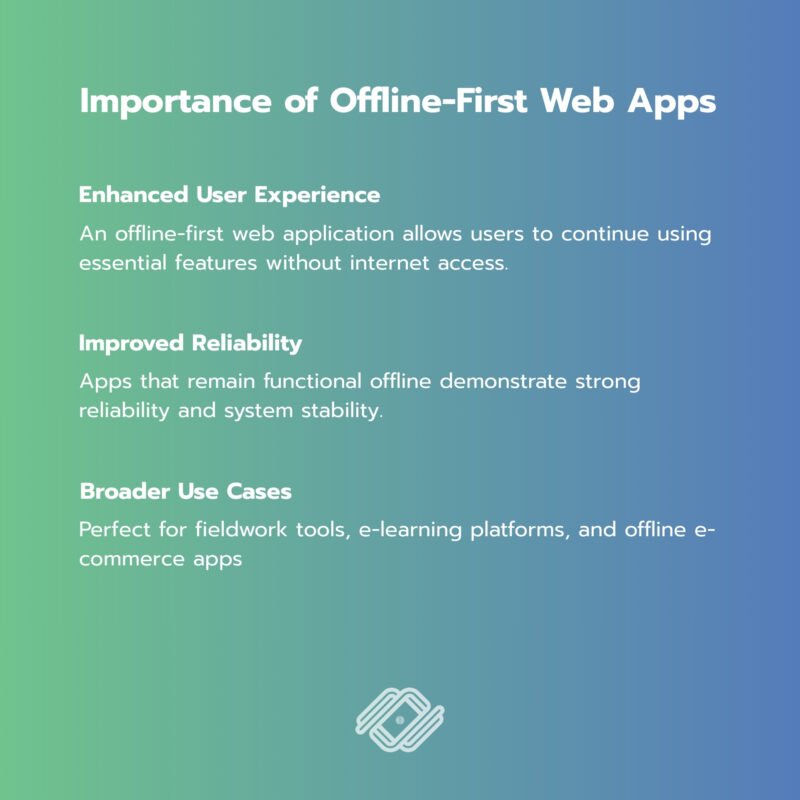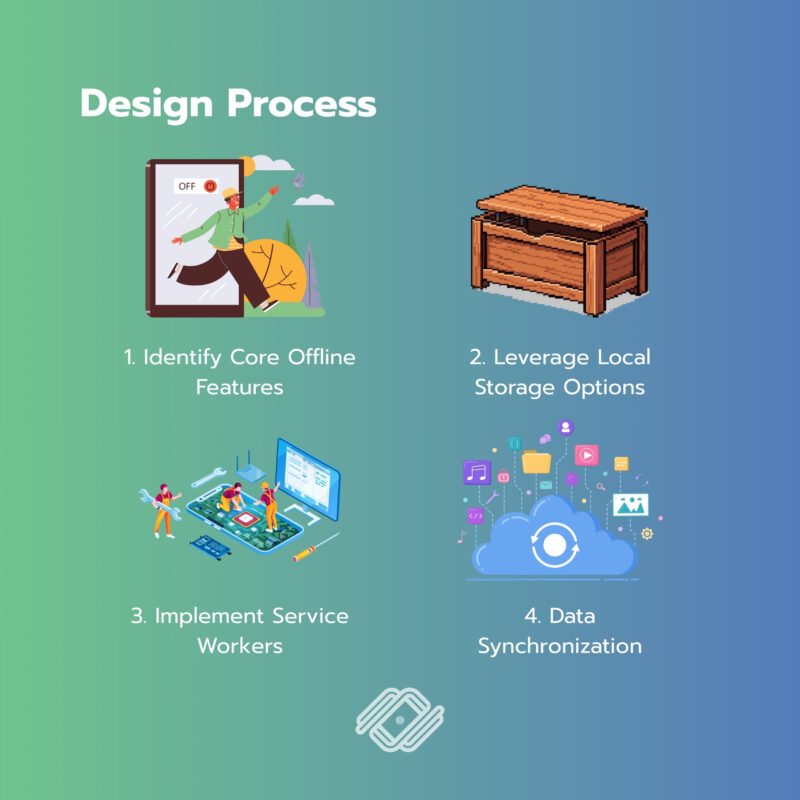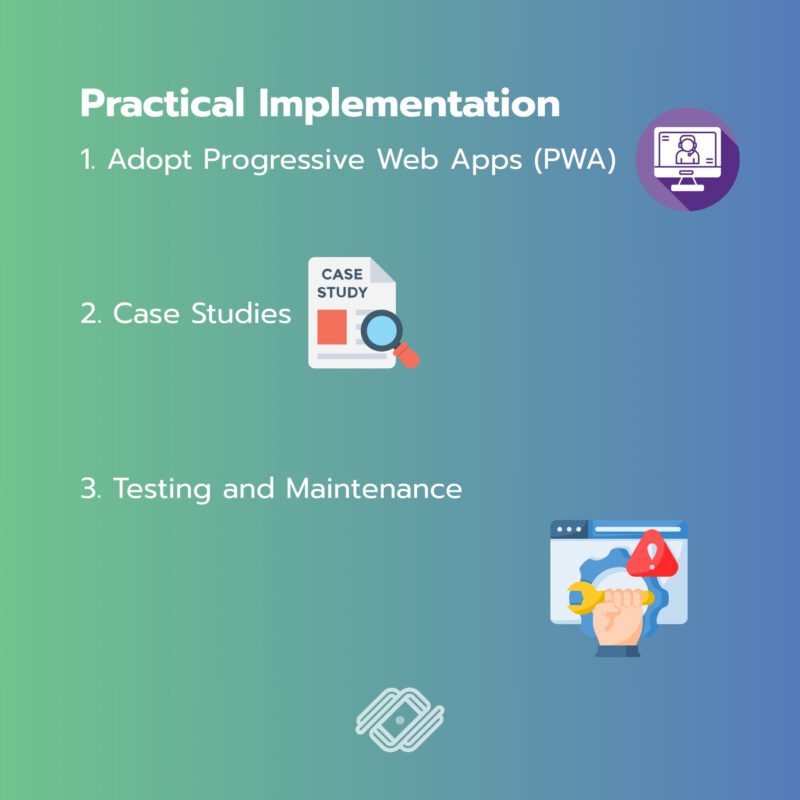
Importance of Offline-First Web Apps
- Enhanced User Experience
An offline-first web application allows users to continue using essential features without internet access.
- Improved Reliability
Apps that remain functional offline demonstrate strong reliability and system stability.
- Broader Use Cases
Perfect for fieldwork tools, e-learning platforms, and offline e-commerce apps

Design Process for Offline-First Web Applications

- Identify Core Offline Features
Focus on essential offline features like form submissions, cached content viewing, or temporary notes.
- Leverage Local Storage Options
- IndexedDB for structured datasets
- LocalStorage/SessionStorage for lightweight data
- Cache API for static assets and offline access
- Implement Service Workers
Enable offline-first functionality by intercepting requests and serving cached responses.
- Data Synchronization
Ensure offline updates sync seamlessly with the server once connectivity is restored.
Practical Implementation

- Adopt Progressive Web Apps (PWA)
PWAs bring offline functionality, install ability, and push notifications to modern web apps.
- Case Studies
- Travel apps displaying tickets offline
- Note-taking apps syncing later
- Shopping apps saving carts offline
- Testing and Maintenance
Always test web apps in both offline and online scenarios, with proper conflict resolution for synced data.
Conclusion
Offline-first web apps are essential in today’s digital era. By leveraging PWAs, caching strategies, and data synchronization, developers can build robust, reliable, and user-friendly applications that work seamlessly anytime, anywhere.
If you want your business to reach online customers and achieve sustainable marketing results, we are happy to provide consultation on what you need.
For further inquiries, contact us at:
Tel. 093 696 4498 Line OA: https://lin.ee/po8XduU
E-mail: mongkontep@pkindev.com
Inverz Solutions Co., Ltd. has received numerous awards for its achievements
